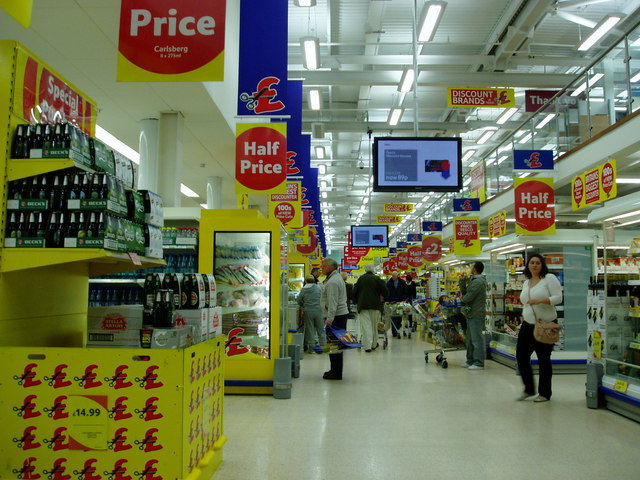
The Mayor of London, Sadiq Khan, has warned that low paid Londoners are being hit harder by the cost of living crisis than other parts of the UK, as new City Hall
research suggests that London is experiencing faster underlying inflation in some areas.
The UK’s rate of inflation jumped to 10.1 per cent in July, the first time it has registered a double-digit annual increase in more than four decades, and Bank of England projections point to inflation accelerating further later this year. However, over the last six months, underlying inflation for local prices in London has consistently been found to track 1.5 percentage points higher than the national figure.
Rising local food costs is one of the key pressures pushing the capital’s underlying inflation above the national average. This will affect Londoners on the lowest incomes the hardest as they spend a larger proportion of their income on food.
London rental prices are also a major factor: the Rightmove Rental Price Tracker (1) indicates asking rents for new rentals in London are growing faster than anywhere else in the UK, up as much as 15.8 per cent annually in the last three months. This inflationary pressure will only grow as more people renew or move out of contracts that may have been kept at a lower price for longer due to the pandemic.
However, Londoners spend less on energy compared to their counterparts in the rest of the UK due to warmer weather and smaller property sizes due to high housing costs, though they are of course still severely affected by inflation.
Meanwhile, London continues to see an uneven pattern of pay growth, with mostly high-paying jobs seeing the fastest wage growth, and lower-paying sectors seeing slower growth. Whilst sectors such as finance, ICT and science and technology have seen median pay grow by more than 17 per cent in London since 2019, sectors with low median pay have seen much smaller pay rises, which will likely be rendered as pay cuts in real terms when inflation is accounted for (Table 1).
Research from YouGov published last week (2) found 20 per cent of lower-income Londoners have regularly or occasionally gone without food or essential items or relied on outside support in the last six months. The number of Londoners being hit by the rising cost of living is also going up every month, with nearly a third saying they are ‘just about managing’ and almost one in five ‘financially struggling’.
Those being hit the hardest and most likely to say they are financially struggling are Asian and Black Londoners, those with an income of less than £20,000, renters and Deaf and Disabled Londoners.
Sadiq has suggested a range of measures the Government should implement now to ease the cost of living crisis for Londoners.
These include:
- The introduction of an energy ‘Lifeline Tariff’ for the most vulnerable Londoners, providing the minimum energy needed for a household to function for free, with any charges kicking in only once a minimum use threshold had been met. This would be a major step towards helping ensure people would not need to choose between heating and eating this winter.
- Introducing a two-year rent freeze for London’s 2.4m private renters, which would act as a first step towards devolving full rent control powers to cool London’s overheated private rental sector. City Hall analysis shows a rent freeze in the capital over two years would save renters an average of £2,988.
- Extending the provision of healthy free school meals to all primary school children during term-time with free meal vouchers available for those in most need during the school holidays. As well as helping all families with the cost of living, research shows that making free school meals universal helps reduce stigma and therefore boosts take up among families who need them most.
- Restoring the £20 Universal Credit uplift, which Ministers removed in September last year, pushing 130,000 more Londoners into poverty. The Mayor is also calling for all benefits to be raised in line with inflation and all caps to be removed to help cut poverty in London and across the UK.
The Mayor of London, Sadiq Khan said: “This new report shows in black and white that millions of low paid Londoners are living on the front line of the cost of living crisis.
“I’m doing all I can to support Londoners, but we need the Government to step up. This must include doing more on energy bills to ensure no one has to make the choice this winter of heating their home or eating, increasing benefits in line with inflation, and giving me the power to implement rent controls in London.
“Whoever becomes the next Prime Minister must make tackling the cost of living for Londoners – and people across the country – their top priority.”
- Rightmove, Rental Price Tracker, accessed 11 August 2022
- Polling figures, unless otherwise stated, are from YouGov Plc. Total sample size was 1,245 adults. Fieldwork was undertaken between July 15-20. The survey was carried out online. The figures have been weighted and are representative of all London adults (aged 18+). It is published here: https://data.london.gov.uk/dataset/gla-poll-results-cost-of-living-2022. Respondents classed as ‘financially struggling’ are those who answered either “I am having to go without my basic needs and/or rely on debt to pay for my basic needs” or “I am struggling to make ends meet”. Photo by J Taylor, Wikimedia commons.


































